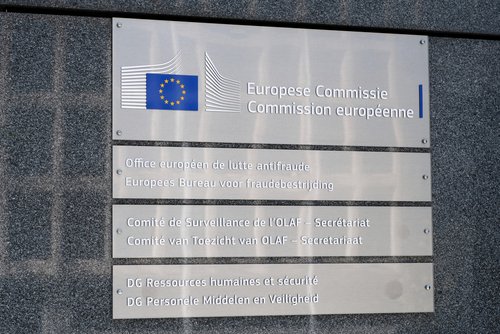Recent reform to the the European Anti-Fraud Office regulatory framework can help protect the EU budget, writes Transparency International’s Antonis Baltas.
Athens (Brussels Morning) The Summit of the European Council in December 2020 was a tense event with a complicated agenda. Its content included a look at the framework of rule of law conditionality attached to the execution of the new Multiannual Financial Framework (MFF) 2021-2027 and the special Next Generation EU (NGEU) funds to the relationship between Turkey, various member states and the EU.
On the first page of conclusions relating to the European Council Meeting of 10 and 11 December 2020, a somewhat mundane reiteration found its place:
“The Union budget, including Next Generation EU, must be protected against any kind of fraud, corruption and conflict of interest”. The meaning of this fairly obvious statement can be understood in the context of the “rule of law” discussions held before and during the Meeting of the Council and the compromises described in the European Council conclusions.
One important and potentially soon crucial aspect of the discussion is that the already established means of and tools for protecting EU financial interests — the Common Provisions Regulation, the Financial Regulation and EU Treaty infringement procedures — are expected to be used in the first instance. Meanwhile, under the draft regulation covering Union budget protection, the new conditionality mechanism shall be “subsidiary”.
Subsequently, institutional memory to combat fraud and corruption against EU financial interests will remain important, not least to protect the integrity of the new MFF and the NGEU. In this context, the European Anti-Fraud Office (OLAF) is the EU Service with the right experience and proven track record for the task. Despite OLAF’s importance, the office is not immune to regulatory or functional discrepancies.
The 2017 evaluation of the implementation of the so-called “OLAF Regulation” (EU Regulation 883/2013) shed adequate light on the gaps in OLAF’s functioning. The publication of the new EU Regulation 2020/2223 of 28 December 2020, amending the OLAF Regulation with regards cooperation with the European Public Prosecutor’s Office (EPPO) and the effectiveness of the European Anti-Fraud Office investigations, was more than timely.
On cooperation with EPPO, the new regulation stipulates OLAF shall establish and maintain a close relationship with EPPO, “based on mutual cooperation, information exchange, complementarity and the avoidance of duplication”. OLAF is obliged to report to EPPO any criminal conduct regarding which the latter could exercise its competence.
The rule of non-duplication of investigations is explicitly established and arrangements provided for the identification of duplications. Moreover, OLAF’s assistance to EPPO investigations is also addressed, as well as the framework for the exchange of information: OLAF shall have indirect access to information in the EPPO’s case management system. Another sensitive subject touched on in the new regulation is the possibility of an OLAF administrative investigation in parallel with a criminal investigation by the EPPO.
Furthermore, the new regulation enhances the operational capabilities of OLAF in various ways:
- The regulation clarifies “the conduct by OLAF of on-the-spot checks and inspections in situations where the economic operator concerned submits to the on-the-spot check and inspection should be subject to Union law alone”. This is a breakthrough, consolidating CJEU case law, especially after the Sigma Orionis case in which the CJEU stated that evidence gathered by OLAF during (unopposed) on-the-spot checks are permissible during EU administrative procedures, even if the same evidence is not permitted in court procedures of member states. It is obvious that the new arrangement enhances the uniformity of OLAF investigations, while it raises the standard of OLAF’s autonomy from the member states’ law enforcement agencies.
- According to the Anti-Money Laundering Directives, OLAF will have access to bank accounts and other archives kept by Member-States authorities. Until now, OLAF access to this data was dependent on the member states’ legislation and discretion. This is also a major enhancement of OLAF’s investigative capacity with considerable effect on the juxtaposition of the EU legal Framework and member states’ national law.
- The EU Directive on the protection of whistleblowers shall also apply to the reporting of fraud, corruption and any other illegal activity affecting the financial interests of the Union and the protection of persons reporting such breaches. Therefore the material scope of the whistleblower Directive is widened.
On a different note, the rights of the persons investigated by OLAF are expected to be enhanced with the establishment of a controller of procedural guarantees and a relevant complaints mechanism in OLAF. This is a meaningful development since the office’s investigative capabilities are considerably enhanced and the procedural guarantees of the persons subject to OLAF investigations need to be preserved and protected. Meanwhile, the new regulation lays out a more detailed framework for the member states’ Anti-Fraud Coordination Services, providing the member states a chance to improve their operational and policy-making capabilities.
The efficient and fair fight against fraud and corruption, while not as flashy as and definitely less controversial than the expected new rule of law conditionality mechanism is an ongoing pursuit with an established structure, providing concrete and measurable results and expectations. The timely institutional enhancement of the structure with OLAF regulation amendments is more than welcome especially so if the new arrangements are to be accompanied by the political will to support OLAF and EPPO in executing their mandate — essential to achieving EU policy objectives and certainly complement the rule of law principles.




